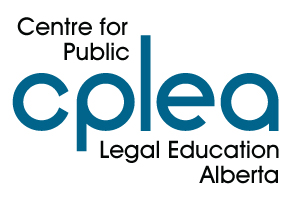The mandate of the CCNC includes to promote the rights of all individuals, in particular, those of Chinese Canadians and to encourage their full and equal participation in Canadian society.
Human rights are moral rights and freedoms that belong to everyone simply by reason of being human. They include the right to life, liberty and a decent human experience as well as all of the political, social, and economic rights necessary for people to live dignified lives. In Canada these rights are protected both by specific laws (for example, anti-discrimination laws) and by our constitution.
CPLEA resources on human rights. Resources include information on how to file a human rights complaint. See: https://www.cplea.ca/humanrightswhenrenting/
Canada/Federal
CCD is a national human rights organization of people with disabilities working for an inclusive and accessible Canada. CCD's priorities include: disability-related supports; poverty alleviation; increased employment for persons with disabilities; promotion of human rights; ratification and implementation of the UN Convention on the Rights of Persons with Disabilities; technology developed according to the principles of universal design; and, air, rail, bus and marine transport that is accessible to persons with all types of disabilities. CCD seeks to achieve these priorities through law reform, litigation, public education and dialogue with key decision-makers.
This guide was design for parents to prepare them for the conversations they may need to have with their kids when they first start using digital devices, as they grow and their online activities change, and when things go wrong. The guide is divided into three sections that each deal with a different aspect of digital citizenship: Respect People's Feelings, to Respect Privacy and to Respect Property online.
This tipsheet is produced by the Stride Advocacy Project. The Project works to strengthen community based advocacy that relates and navigates systems and institutions while creating “access without fear” spaces for marginalized and low income Edmontonians.
One of the most famous cases in Canadian legal history--the Persons Case--was brought by five Alberta women--Emily Murphy (Herstory 1974), Nellie McClung (Herstory 1974), Irene Parlby (Herstory 1975), Henrietta Muir Edwards (Herstory 1976), and Louise McKinney (Herstory 1981). They asked the Supreme Court of Canada to declare that women were persons under the meaning of the British North America Act and therefore eligible to be appointed to the Senate.
The Human Rights Glossary includes terminology related to human rights in the Canadian context. The glossary contains terms used by the Canadian Human Rights Commission (CHRC) and the Canadian Human Rights Tribunal (CHRT). Created in 1977 by Parliament, this tribunal is the only entity that may legally decide whether a person or organization has engaged in a discriminatory practice under the Canadian Human Rights Act. An administrative tribunal specializing in the field of human rights, the CHRT is similar to a court of law, but is less formal. In 1996, the Tribunal’s responsibilities were expanded to include the adjudication of complaints under the Employment Equity Act. According to the Act, the CHRT also operates as the Employment Equity Review Tribunal.
This website is maintained by the Canadian Heritage Human Rights Program. The mission of the Human Rights Program is to promote the development, understanding, respect for and enjoyment of human rights in Canada. To accomplish this, the program undertakes educational and promotional activities involving the public, educators, non-governmental organizations, government departments and others.
The Canadian Human Rights Commission website on the evolution of human rights in 20th Century Canada. Explores the key court cases and laws that have shaped human rights in our country since 1900.
The Canadian Human Rights Commission website on the evolution of human rights in 20th Century Canada. Explores the key court cases and laws that have shaped human rights in our country since 1900.








Follow CPLEA